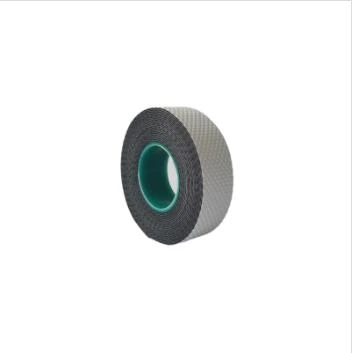The Benefits and Applications of Butyl Rubber Rolls
Butyl rubber, a synthetic rubber composed primarily of isobutylene with a small amount of isoprene, has become an essential material in various industries due to its unique properties. One of the most common forms in which butyl rubber is available is in rolls, making it highly versatile for a range of applications. This article delves into the key benefits of butyl rubber rolls and explores their various uses in different sectors.
Unique Properties of Butyl Rubber
Butyl rubber boasts several properties that differentiate it from other types of rubber. Its low permeability to gases makes it an excellent choice for applications requiring airtight seals. Furthermore, butyl rubber is resistant to aging, UV radiation, and ozone, which enhances its durability and lifespan. Another notable characteristic is its excellent elasticity. Butyl rubber can stretch significantly without losing its integrity, which is crucial for many applications.
Benefits of Butyl Rubber Rolls
1. Versatile Applications Butyl rubber rolls are incredibly versatile, making them suitable for multiple industrial applications. They can be used for insulation, roofing, adhesives, and seals, among other uses. This versatility enables businesses to utilize a single material for various projects, thus simplifying supply chain management.
2. Cost-Effective Solution Purchasing butyl rubber in roll form can be economically advantageous. It allows for a considerable amount of material to be bought at one time, often at a reduced rate compared to smaller, pre-cut pieces. This bulk purchasing not only saves money but also reduces waste.
3. Ease of Installation Butyl rubber rolls are easy to cut and apply, making them user-friendly for both professionals and DIY enthusiasts. Whether laying down insulation or sealing joints, the rolls can be manipulated to fit various applications efficiently.
4. Long-Lasting Durability The inherent strength of butyl rubber means that products made from it last longer than those made from other materials. This durability not only reduces the frequency of replacements but also contributes to lower maintenance costs over time.
butyl rubber roll

5. Resistance to Chemicals Butyl rubber is resistant to a wide range of chemicals and solvents. This property makes it an ideal choice for applications where contact with harsh substances is expected, thus preventing degradation and preserving the integrity of the material over time.
Applications in Various Industries
1. Construction In the construction industry, butyl rubber rolls are used for roofing membranes and waterproofing systems. Their ability to form airtight seals ensures that buildings remain insulated from the elements, which is crucial for maintaining energy efficiency.
2. Automotive Butyl rubber is extensively used in the automotive sector, where it is employed for inner tubes, tires, gaskets, and seals. Its low permeability contributes to better tire inflation retention, enhancing fuel efficiency and vehicle performance.
3. Medical The medical industry also benefits from butyl rubber rolls. It is often used in manufacturing pharmaceutical stoppers and seals, where airtight packaging is necessary to maintain sterility and prolong product shelf life.
4. Consumer Products Butyl rubber is found in various consumer products, such as adhesives, sealants, and flooring materials. Its ability to withstand wear and tear makes it a preferred choice for products designed for everyday use.
5. Aerospace In the aerospace industry, butyl rubber plays a significant role in cushioning and vibration-dampening applications. Its excellent physical properties help in protecting sensitive components from damage due to shock and vibration.
Conclusion
Butyl rubber rolls are a remarkable material that combines versatility, durability, and cost-effectiveness. Their unique properties lend themselves to an array of applications across various industries, from construction and automotive to medical and consumer products. As industries continue to seek sustainable and efficient materials, butyl rubber stands out as a reliable option for both manufacturers and end-users alike. The future will likely see further innovations in the use of butyl rubber, solidifying its status as a staple in modern manufacturing and construction practices.
-
Self Amalgamating Tape: Redefining Electrical Insulation and ProtectionNewsAug.07,2025
-
Seal Strip Solutions: Revolutionizing Energy Efficiency and Comfort in Modern BuildingsNewsAug.07,2025
-
High Voltage Electrical Tape: Powering Safety and Reliability in Modern InstallationsNewsAug.07,2025
-
Flex Tape Waterproof: Transforming the Future of Instant RepairsNewsAug.07,2025
-
Elevate Electrical Safety Standards with High-Performance PVC Electrical TapeNewsAug.07,2025
-
Butyl Rubber Tape: The Ultimate Solution for Reliable Sealing and WaterproofingNewsAug.07,2025
